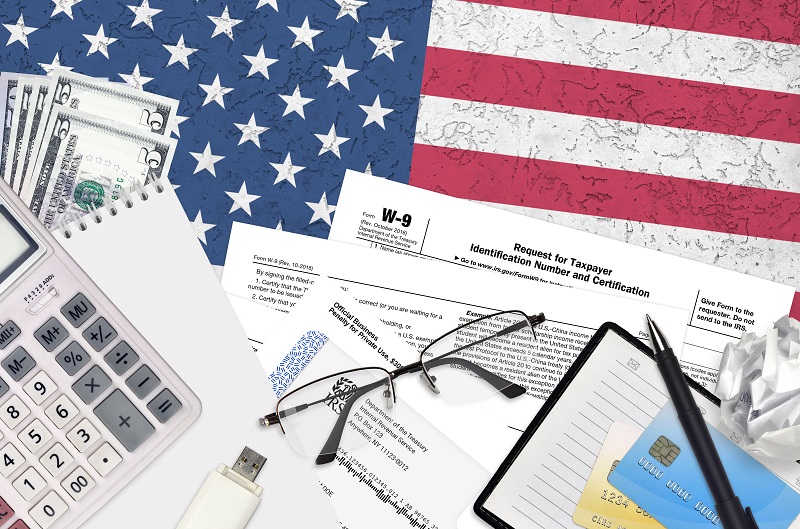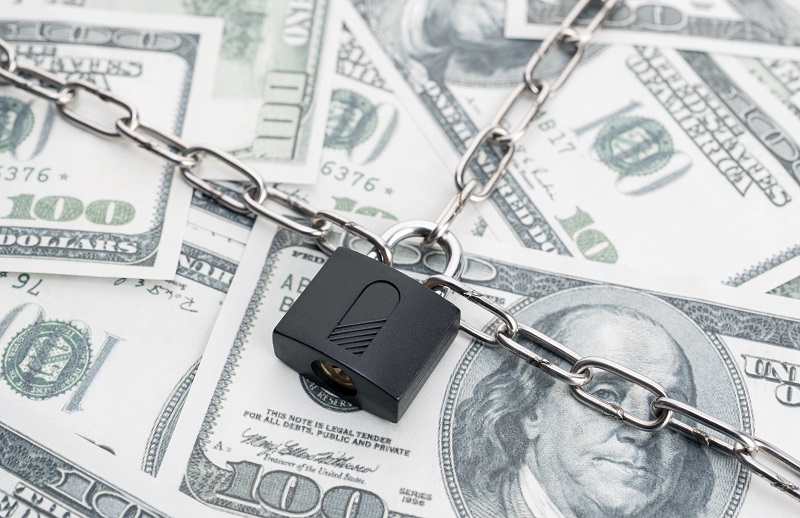The credit repair industry is highly regulated, and Hawaii is no exception. If you’re thinking of starting a credit repair business in Hawaii, you must be aware of the legal requirements and obligations that come with it. This article will help you navigate the legal landscape and ensure your business is compliant with state and federal laws.
Research and Understand Federal Laws

Familiarize yourself with the Credit Repair Organizations Act (CROA), which governs credit repair companies at the federal level.
The primary federal law governing credit repair businesses in the United States is the Credit Repair Organizations Act (CROA), which is enforced by the Federal Trade Commission (FTC). The CROA sets forth rules and regulations that credit repair companies must follow to ensure they operate ethically and transparently.
Here are some key provisions of the CROA:
- Prohibition Of False or Misleading Statements: Credit repair companies are prohibited from making false or misleading statements to consumers about their services, including claims about their ability to improve credit scores.
- Written Contracts: Credit repair companies must provide clients with a written contract outlining the services they will provide, the total cost, and the time it will take to achieve the promised results. Clients have the right to cancel the contract within three business days without penalty.
- Advance Fees Prohibition: Credit repair companies are not allowed to charge or receive any payment until they have completed the services they promised in the contract.
- Disclosure of Consumer Rights: Credit repair companies must provide clients with a written statement of their rights under the CROA, which includes the right to dispute inaccurate information on their credit reports themselves without the help of a credit repair company.
- Record Keeping: Credit repair companies must keep records of all contracts and correspondence with clients for a minimum of two years after the date the contract was signed.
Research Hawaii State Laws

Hawaii has its own set of regulations for credit repair businesses. Specifically, review the Hawaii Credit Repair Services Organization Act (HRS § 481B-21 to 481B-30) to understand the state’s requirements.
- HRS § 481B-21: Definitions – Provides definitions for various terms used within the Act, such as “credit repair services organization,” “buyer,” and “person.”
- HRS § 481B-22: Prohibited practices – Outlines prohibited practices for credit repair companies, including making false or misleading statements about their services or their ability to improve a client’s credit score.
- HRS § 481B-23: Payment in advance – Prohibits credit repair organizations from charging or receiving any payment for their services until they have completed the services promised in the contract.
- HRS § 481B-24: Surety bond – Requires credit repair organizations to obtain a surety bond in the amount of $25,000 to protect their clients.
- HRS § 481B-25: Contracts – Specifies the requirements for written contracts between credit repair companies and their clients, including details of the services to be provided, the total cost, and the duration required to achieve the promised results.
- HRS § 481B-25.5: Notice of cancellation – Requires credit repair contracts to include a notice of cancellation, allowing clients to cancel the contract within three business days without penalty.
- HRS § 481B-26: Waiver – States that any waiver by a buyer of the provisions of the Act is unenforceable and void.
- HRS § 481B-27: Violations – Indicates that any violation of the Act constitutes an unfair or deceptive act or practice under section 480-2.
- HRS § 481B-28: Records – Requires credit repair companies to maintain records of all transactions, correspondence, and contracts with clients for a period of two years.
- HRS § 481B-29: Enforcement; penalties – Describes the enforcement powers of the director of the Department of Commerce and Consumer Affairs, as well as potential penalties for violations, including fines and possible suspension or revocation of registration.
- HRS § 481B-30: Civil liability – Specifies the civil liability for violations of the Act, including the buyer’s right to recover actual damages, punitive damages, attorney’s fees, and court costs.
Register Your Business

Choose a business name and register your company with the Hawaii Department of Commerce and Consumer Affairs (DCCA). You’ll need to decide on a business structure (e.g., LLC, corporation) and complete the necessary paperwork.
For information and resources related to starting and registering a credit repair business in Hawaii, you should visit the Hawaii Department of Commerce and Consumer Affairs (DCCA) Business Registration Division (BREG). You can find their contact information and online services below:
Physical Address:
Department of Commerce and Consumer Affairs
Business Registration Division
335 Merchant Street, Rm. 201 Honolulu, Hawaii 96813
Phone: (808) 586-2727
Online Services and Resources:
For information on specific requirements and regulations for credit repair businesses, you may also want to consult with the Regulated Industries Complaints Office (RICO) under the DCCA, which is responsible for enforcing certain aspects of the Hawaii Credit Repair Services Organization Act.
RICO contact information:
Phone: (808) 587-4272
Website: https://cca.hawaii.gov/rico/
Remember to consult with a legal professional for accurate and up-to-date information on starting a credit repair business in Hawaii, as laws and regulations may change over time.
Obtain Required Licenses and Permits

Check with local and state authorities to determine if you need any additional licenses or permits to operate a credit repair business in Hawaii.
Obtain a General Excise Tax (GET) license from the Hawaii Department of Taxation. All businesses in Hawaii are required to have a GET license to conduct business, as they must pay a general excise tax on their gross income.
Check with your local county or city office to determine if any additional licenses or permits are required to operate a credit repair business in your area. Local requirements may vary depending on your location and the specific services you offer.
Apply for an Employer Identification Number (EIN)

You’ll need an EIN from the IRS for tax purposes.
Here are the steps to apply for an EIN online:
- Visit the IRS EIN Application Page.
- Click on “Apply Online Now” to start the application process.
- Read the guidelines and requirements provided by the IRS, then click “Begin Application.”
- Choose the legal structure of your business (e.g., sole proprietor, partnership, corporation, etc.) and click “Continue.”
- Follow the prompts to provide the necessary information about your business, including its name, address, and responsible party.
- Complete the application by providing all the requested information and submit the form.
- Once your application is approved, you will receive your EIN immediately. Be sure to save or print the confirmation notice, as the IRS will not send another copy.
Note that the online EIN application is only available during specific hours, as mentioned on the IRS website. If you prefer to apply by mail or fax, you can download Form SS-4 from the IRS website, complete it, and submit it according to the instructions provided.
Open A Business Bank Account

To keep your personal and business finances separate, open a dedicated bank account for your credit repair business.
1. Choose A Bank:
Research and compare the various banks and credit unions in Hawaii to find one that offers business accounts and suits your needs. Consider factors such as fees, transaction limits, and online banking features when making your decision.
2. Gather Required Documentation:
To open a business bank account, you will need to provide certain documents and information. The requirements may vary slightly from bank to bank, but typically include:
- Business registration documents (e.g., Articles of Incorporation, Articles of Organization, or DBA registration)
- Employer Identification Number (EIN) or Social Security Number (for sole proprietors)
- Business license or permit, if applicable
- Personal identification (e.g., driver’s license, passport) for all account signatories
- Business address and contact information
3. Choose The Type Of Account:
Decide which type of account best fits your business needs. Banks usually offer various options, such as business checking accounts, savings accounts, or money market accounts.
4. Visit The Bank or Apply Online:
Depending on the bank, you may be able to open a business account online, or you may need to visit a local branch in person. Bring all the required documentation and be prepared to provide information about your business, such as its nature, expected transaction volume, and sources of income.
5. Complete The Account Opening Process:
Fill out the necessary forms and provide the required documentation. Once your account is approved, deposit the required minimum opening balance and obtain the account details, such as account number and routing number.
6. Set Up Online Banking and Order Checks:
If the bank offers online banking, set up your online account, and familiarize yourself with its features. Order business checks, if necessary, and consider applying for a business debit or credit card.
Obtain A Surety Bond

Hawaii requires credit repair organizations to obtain a surety bond in the amount of $25,000 (HRS § 481B-24). This bond serves as a financial guarantee to protect your clients.
In Hawaii, credit repair businesses are required to obtain a surety bond in the amount of $25,000 as part of their compliance with the Hawaii Credit Repair Services Organization Act (HRS § 481B-24). A surety bond serves as a financial guarantee that the credit repair business will fulfill its obligations and operate ethically under the terms of the contract with its clients.
Here’s how to obtain a surety bond for your credit repair business in Hawaii:
Research Surety Bond Providers:
Look for insurance companies or bond agencies that offer surety bonds for credit repair businesses in Hawaii. Compare their rates, reputation, and customer service before selecting a provider.
Gather Necessary Documentation:
Be prepared to provide information about your business, such as your business registration details, EIN, and financial statements. The surety bond provider may require additional documentation to assess the risk associated with issuing the bond, such as credit history and financial stability.
Complete The Application:
Fill out the surety bond application provided by the bond provider. The application will typically require details about your business, personal information, and a description of the services you offer.
Submit The Application:
Send the completed application and required documentation to the surety bond provider. They will review your application and determine if they can issue the bond, and at what rate.
Pay The Bond Premium:
If your application is approved, you will need to pay the bond premium, which is a percentage of the total bond amount ($25,000). The premium rate will depend on your credit score and financial stability. Generally, the premium rate ranges from 1% to 15% of the total bond amount.
Obtain The Bond:
Once you have paid the premium, the surety bond provider will issue the bond. You will receive a document confirming the bond’s issuance, which you may need to provide to the Department of Commerce and Consumer Affairs (DCCA) as proof of compliance with the surety bond requirement.
Establish A Contract:

Create a written contract that complies with Hawaii state law, detailing the services to be provided, fees, and terms. Ensure that the contract includes a Notice of Cancellation as required by law (HRS § 481B-25).
Written Contract:
Ensure that you have a written contract signed by both parties (the credit repair organization and the client). The contract should include all the terms and conditions agreed upon by both parties.
Required Information:
The contract must include the following information:
- The full legal name and business address of the credit repair organization.
- A detailed description of the services to be provided, including any guarantees or promises made to the client
- The total cost of the services, including any fees, charges, or other expenses
- The duration required to achieve the promised results or an estimated completion date
- A statement informing the client of their right to cancel the contract within three business days without incurring penalties or fees
Notice Of Cancellation:
Include a separate notice of cancellation form in the contract, informing clients of their right to cancel the contract within three business days without any penalty or obligation. The notice should clearly explain the cancellation procedure and provide space for the client to indicate their desire to cancel.
Retain Copies:
Keep a copy of the signed contract and any other related documents for at least two years, as required by HRS § 481B-28.
Comply With Federal Laws:
In addition to Hawaii state regulations, you must also adhere to federal laws, such as the Credit Repair Organizations Act (CROA), which has additional requirements and restrictions for credit repair businesses.
Consult A Legal Professional:
Before finalizing your contract, consult with a legal professional experienced in credit repair and consumer protection laws to ensure that your contract is compliant with both federal and state regulations.
Set Up A Record-Keeping System

Maintain detailed records of all transactions, correspondence, and contracts with clients, as well as any advertising materials.
Understand Legal Requirements:
Familiarize yourself with state and federal regulations that apply to credit repair businesses. The Hawaii Credit Repair Services Organization Act (HRS § 481B-21 to 481B-30) and the Credit Repair Organizations Act (CROA) outline specific requirements for maintaining records.
Store Client Contracts:
Retain a copy of each signed client contract and any other related documents. According to HRS § 481B-28, you must keep these records for at least two years.
Maintain Client Files:
Keep organized and detailed files for each client, including their personal information, credit reports, correspondence with credit bureaus and creditors, dispute letters, and progress updates.
Track Financial Transactions:
Record all financial transactions related to your credit repair business, including client payments, invoices, expenses, and fees. This information will be crucial for preparing financial statements and filing taxes.
Use A Secure Filing System:
Store physical documents in a secure and organized filing system, such as a locked cabinet. Label and categorize files to ensure easy access and retrieval.
Utilize Software:
Consider using credit repair or customer relationship management (CRM) software to help streamline your record-keeping process. Many software options are available, offering features such as client file management, progress tracking, and report generation.
Protect Client Privacy:
Ensure that you have measures in place to protect client privacy and comply with relevant data protection regulations, such as the Fair Credit Reporting Act (FCRA) and the Federal Trade Commission’s (FTC) Red Flags Rule. Implement security measures for both physical and digital records, including restricted access, encryption, and secure disposal of documents.
Regularly Review and Update Records:
Schedule periodic reviews to ensure that records are accurate, complete, and up-to-date. Update client files as necessary and archive records as required by law.
Develop A Document Retention Policy:
Create a policy that outlines your business’s procedures for retaining, archiving, and disposing of records. This policy should comply with state and federal regulations and should be regularly reviewed and updated.
Consult With a Legal Professional:
Consult with a legal professional experienced in credit repair and consumer protection laws to ensure that your record-keeping system complies with all applicable regulations.
Develop A Marketing Plan

Create a plan to reach potential clients, including online advertising, networking with local businesses, and establishing partnerships with complementary service providers.
Market Research:
Conduct thorough research on your target market, including demographics, needs, and financial behavior. Understanding your potential clients will help you tailor your marketing messages and create targeted campaigns.
Set Clear Goals:
Define your marketing objectives, such as increasing brand awareness, acquiring new clients, or expanding into new markets. Make your goals specific, measurable, achievable, relevant, and time-bound (SMART).
Develop Your Unique Selling Proposition (USP):
Identify the unique aspects of your credit repair services that set you apart from competitors. Your USP should highlight the benefits and value that clients will receive from working with your business.
Create A Budget:
Determine how much you can allocate to marketing activities, and prioritize spending based on the potential return on investment (ROI) of each marketing tactic.
Choose Marketing Strategies:
Select the most effective marketing channels and tactics to reach your target audience. Some strategies to consider include:
- Content Marketing: Develop valuable and informative content (blog posts, articles, videos, etc.) to educate potential clients about credit repair and position your business as an industry expert.
- Search Engine Optimization (SEO): Optimize your website and content to rank higher on search engine results pages (SERPs), making it easier for potential clients to find your business.
- Social Media Marketing: Use platforms like Facebook, Instagram, Twitter, and LinkedIn to share valuable content, engage with potential clients, and build brand awareness.
- Email Marketing: Create an email list and send newsletters, promotional offers, and updates to keep your audience engaged and informed.
- Online Advertising: Utilize platforms like Google Ads and Facebook Ads to reach a targeted audience through pay-per-click (PPC) campaigns.
- Local Marketing: Participate in community events, partner with local businesses, and network with industry professionals to increase local visibility.
- Referral Programs: Develop a referral program that rewards clients for referring new customers to your business.
Track And Measure Results:
Monitor the performance of your marketing efforts using key performance indicators (KPIs) to determine the effectiveness of each strategy. Use this data to adjust your marketing plan and allocate resources to the most successful tactics.
Review And Adjust:
Regularly review your marketing plan and make adjustments based on your results and changes in the market. Stay informed about industry trends, competitors, and new marketing tools and technologies to ensure your plan remains relevant and effective.
Compliance With Regulations:
Ensure your marketing materials and practices adhere to state and federal regulations, such as the Hawaii Credit Repair Services Organization Act, the Credit Repair Organizations Act (CROA), and the Federal Trade Commission (FTC) guidelines for advertising.
Stay Informed About Changes To The Industry

Keep up-to-date with credit repair laws and industry best practices to ensure your business remains compliant and competitive.
Monitor Regulatory Bodies And Agencies:
Keep track of updates and announcements from relevant federal and state agencies, such as the Federal Trade Commission (FTC), the Consumer Financial Protection Bureau (CFPB), and the Hawaii Department of Commerce and Consumer Affairs (DCCA). Subscribe to their newsletters or follow them on social media to receive updates.
Join Professional Associations:
Participate in industry associations and organizations, such as the National Association of Credit Services Organizations (NACSO) or the Credit Consultants Association (CCA). These organizations offer resources, networking opportunities, and updates on industry trends and regulations.
Attend Conferences and Workshops:
Attend credit repair and finance-related conferences, workshops, or seminars to stay informed about the latest industry trends, best practices, and regulatory changes.
Subscribe To Industry Publications:
Sign up for newsletters, blogs, or magazines that cover the credit repair industry and consumer finance topics. Stay informed about the latest news, trends, and best practices.
Network With Industry Professionals:
Connect with other credit repair business owners, attorneys, and financial professionals to exchange ideas, insights, and updates on industry developments.
Participate In Online Forums and Discussion Groups:
Join online credit repair communities, forums, or social media groups where professionals discuss industry news, trends, and best practices.
Stay Informed About Legislative Changes:
Keep an eye on state and federal legislative developments that may affect the credit repair industry. Track any proposed bills or amendments that could impact your business and be prepared to adapt accordingly.
Continuous Education:
Invest in ongoing education and professional development by taking courses, earning certifications, or attending workshops on credit repair, consumer finance, and compliance.
Consult With Legal Professionals:
Regularly consult with an attorney experienced in credit repair and consumer protection laws to ensure your business remains compliant with all applicable regulations.
Review And Update Policies and Procedures:
Periodically review your business’s policies, procedures, and marketing materials to ensure they align with the latest industry best practices and legal requirements.
Ready to start your credit repair business in Hawaii?
Make sure you are informed and compliant with the latest state laws.
Click now to learn more.
In conclusion, starting a credit repair business in Hawaii requires compliance with state and federal laws. As a credit repair business owner, it is essential to stay up-to-date with the latest regulations and requirements to avoid legal troubles and protect your clients’ interests.
Bonus: Now that you have read this article, why not take your new skill and start your own credit business helping others? We have free training that can help you do just that.

